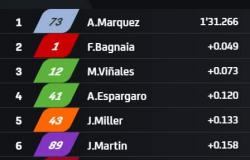
The European Commission is about to launch an investigation into Germany for applying a gas tariff to other countries in the internal market. A contradiction in terms of a sacrosanct principle of the EU, namely the absence of customs taxes or duties of any kind between member states. Yet Berlin did it for over a year and a half, without the usually intransigent Antitrust offices – just look at how much it is quibbling about the Ita-Lufthansa case – having anything to object to. At least until Italy decided to do the same, announcing the introduction of a similar tax (in jargon they call it neutrality charge) starting from April 1st it would be applied on gas leaving the peninsula to other European countries . Suddenly, Brussels woke up. Arera, the Italian energy authority, therefore decided to shelve the idea, also because in the face of increasingly noisy protests from Austria, Slovakia, the Czech Republic and Hungary it had been leaked that the Commission would evaluate a investigation into Berlin. Investigation that will start in a few days.
As reported by the Reuters agency, in fact, the European Commission should sue Germany for having charged its neighbors an additional fee for the purchase of gas from its deposits, considered a violation of the rules of the EU single market, they said two sources familiar with the matter. According to which, the infringement procedure could be started in the next few days.
What is it about? After the gas crisis triggered by Moscow after the military invasion of Ukraine, all EU countries, for fear of running out of gas, rushed to fill the available storage sites. The countries with the largest stocks, such as Germany and Italy, have therefore faced enormous expenditure, also because the demand which has exploded due to the fear of a shortage, combined with the reduction in methane supply by Russia, has caused a monstrous increase in the price. Suffice it to say that today gas costs around 33 euros per megawatt hour, while back then it reached 330 euros per megawatt hour.
Rome and Berlin are the countries that have gone into debt more than others to secure the gas supplies needed to make up for any winter shortages. The Government in office at the time led by Mario Draghi mandated the GSE manager in coordination with Snam to provide the last resort service by purchasing methane for a value of approximately four billion euros. Expenditure that was repaid in full by the Italians, through allocations in the budget law and by applying additional costs to the bill.
Germany, on the other hand, decided to do differently and make the other European countries pay too. As? By applying a “neutrality charge”, a tax, not only to domestic exit points but also to interconnection points with foreign countries, increasing it more and more. From an initial value of 0.59 €/MWh, for the period 1 October 2022 – 30 June 2023, from 1 July 2023, it went to a value of 1.45 €/MWh. From 1 January 2024 to 30 June 2024, this value is €1.86/MWh. In short, a crescendo that is paid by the countries that border the Federal Republic.
Italy had initially decided not to make the same choice for a rather intuitive reason: “The increase in cross-border transport costs” may “have distorting effects and may not comply with the spirit of solidarity required at European level as well as with the rules relating to good functioning of the internal gas market”, Arera had underlined in the past.
In short, for over a year and a half, the impression was that the EU accepted the justification for the duty given by Germany, namely that the gas stored there through the emergency measures was then made freely available on the market (sold, certainly not given), “bringing a general European benefit in terms of greater security of supply”. In short, the cost of the EU’s energy security had to be paid to Berlin because the German regulator, following a directive from the federal government, took steps to store around 50 terawatt hours of methane at exorbitant spot prices in its five storage sites in the summer of 2022, the largest in Europe and legacy of Gazprom, the Russian gas company that supplied the EU before the Ukrainian war. According to Argus estimates, Germany may have spent around 7.8 billion euros to purchase 50 TWh of gas.
Money that he recovered, and is still doing so, thanks to the cross-border duty within the EU. Acer itself, together with the Council of European Energy Regulators (CEER), had made it clear at the dawn of the crisis that “financial compensation should be collected in a non-discriminatory way and not from cross-border transmission tariffs”, according to a document community dated April 2022. In fact, as is obvious, “the cost of national storage obligations should be covered by consumers or citizens of the same Member State”.
Tags: Infringement procedure Berlin applied duty gas years noticed





